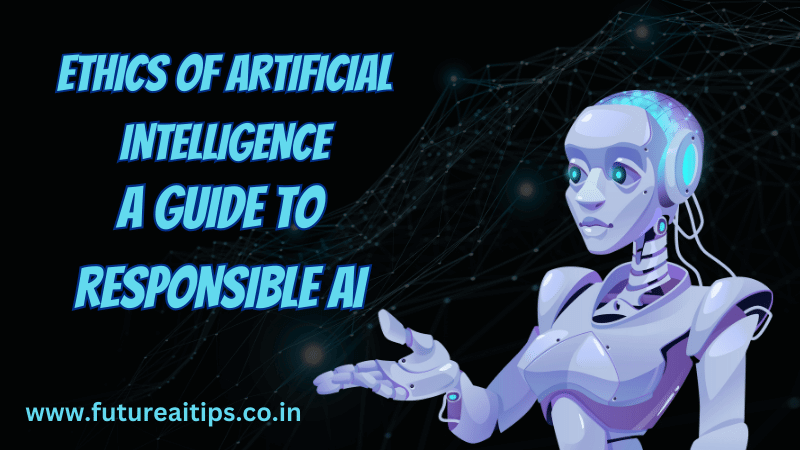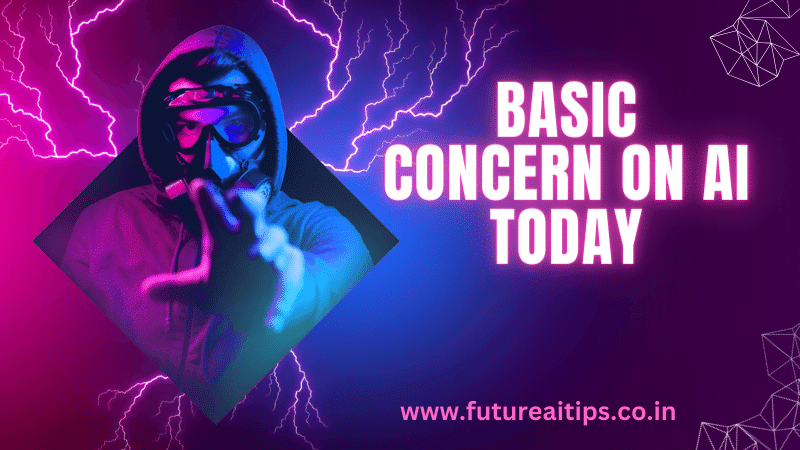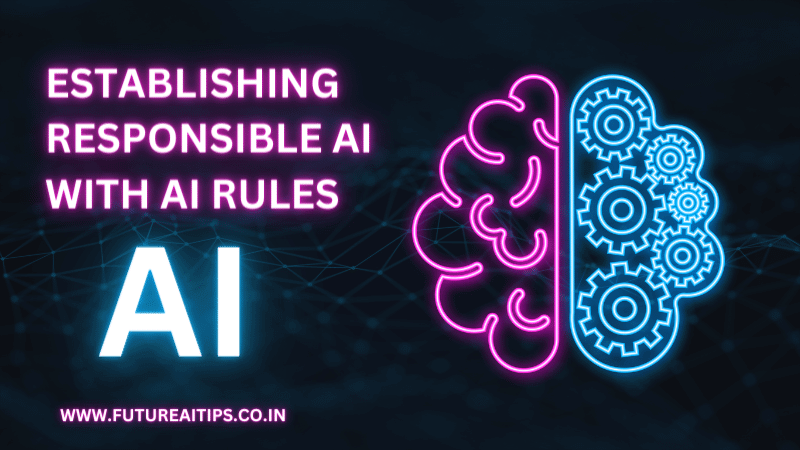Ethics of Artificial Intelligence: A Guide to Responsible AI

Ethics of Artificial Intelligence is about figuring out the right and wrong when it comes to artificial intelligence. It’s like a rulebook for making sure AI does more good than harm. This involves looking at things like keeping data safe, being fair, explaining how AI works, making sure it works well, being open about it, being kind to the environment, including everyone, making sure AI doesn’t do anything bad on its own, making AI follow our values, taking responsibility for AI mistakes, building trust, and not letting AI be used in bad ways.
Companies are using AI more and more to make their work easier and better. But sometimes, they make mistakes because they didn’t do enough research or used biased information. When these mistakes happen, people start to talk about how AI should be used in a fair and responsible way. Ethics of Artificial Intelligence
People who study AI and data have made some rules to help with these problems. Big companies that work with AI are also paying attention to these rules because they want to avoid trouble. If they don’t follow these rules, they can get in trouble with the law or lose their good reputation.
Right now, there aren’t many strict laws about AI, but that might change in the future as more people learn about it. So, in the future, we can expect more rules for companies to follow to make sure AI doesn’t hurt people or take away their rights. A Guide to Responsible AI
Creating Guidelines for Ethical AI

As we’re figuring out how to use AI properly, we’re learning from something called the Belmont Report. This report gives us three important rules to follow when we’re doing experiments or making AI programs. AI rules
- Respect for People: This means we should treat everyone with kindness and let them make choices for themselves. Some people might need more help because they’re not feeling well, have trouble thinking, or are younger. Before doing any experiment, people should know what might happen, both good and bad. They should also be able to say “no” or change their minds if they want. AI rules
- Doing Good: Just like doctors promise to help and not hurt, AI should do good things. Sometimes, AI can accidentally make things worse, like being unfair or treating people differently based on their race, gender, or beliefs. Even if we mean well, we need to make sure AI doesn’t cause harm. AI rules
- Fairness and Equality: This one is about being fair to everyone. When we use AI, we have to think about who benefits from it. The Belmont Report suggests five ways to make sure things are fair:
- Equal Share: Everyone gets the same.
- Individual Need: Some people might need more help, so they get more.
- Individual Effort: If someone works hard, they get more.
- Societal Contribution: If someone helps society, they get more.
- Merit: If someone does really well, they get more. AI rules
These rules are like a guidebook to make sure AI doesn’t hurt people and treats everyone fairly. It’s important because AI can do amazing things, but we want to make sure it’s used in the right way, just like the Belmont Report suggests for experiments and AI development. A Guide to Responsible AI
Basic Concern on AI today

Today, there are some big concerns when it comes to artificial intelligence (AI)
- Foundation Models and Generative AI: AI like ChatGPT can do many amazing things, but they are built on super smart models that can sometimes create problems. These models are really big and can learn from lots of information. However, they can also make mistakes, like being unfair, making up false information, and not explaining themselves well. This can be a problem, especially when many people use them. Ethics of Artificial Intelligence
- Technological Singularity: Some folks worry that AI might become super smart and even smarter than humans. This is not happening right now, but it brings up questions about who’s responsible when things go wrong with AI, like self-driving cars. Do we let AI do everything, or do we keep some control to make sure it’s safe?
- AI Impact on Jobs: People often worry that AI will take away their jobs. But it’s more about changing the types of jobs that are needed. Just like how the car industry changed to focus on electric cars, AI will create new jobs in managing AI systems and solving complex problems.
- Privacy: This is about keeping our personal information safe. Laws like GDPR in Europe and CCPA in the United States help protect our data. Companies need to be careful with our data to avoid hacking and spying.
- Bias and Discrimination: Sometimes, AI systems can be unfair or discriminate against certain groups. For example, in hiring, AI might unintentionally favor one gender over another. This can happen because AI learns from biased data. It’s a problem we need to solve to make AI fair for everyone. A Guide to Responsible AI
- Accountability: There aren’t strict rules for AI yet, but some places are making laws. We also have ethical guidelines to help. However, sometimes it’s hard to figure out who’s responsible when AI goes wrong. We need to work on making sure AI doesn’t harm society.
In simple terms, AI is awesome, but we need to be careful to use it in a way that’s fair, safe, and accountable. These concerns are guiding how we use AI and make sure it’s a force for good.
Establishing Responsible AI with AI rules

Establishing AI ethics is about making sure that artificial intelligence is used in a way that is fair, responsible, and aligned with our values.
- Governance: Think of governance as the rules and processes that keep AI in check. It’s like having a referee in a game to make sure everyone plays by the rules. In the AI world, governance means having clear policies and processes within organizations to oversee how AI is designed, used, and monitored. It also involves training people who work with AI to do it the right way. An AI Ethics Board, made up of diverse leaders, can help make important decisions about AI ethics. Ethics of Artificial Intelligence
- Principles and Focus Areas: Just like having a set of guiding rules, organizations should have principles that guide how they use AI. These principles are like the compass that shows the right direction. They should be applied to everything related to AI, from products to policies. These principles should be built around important areas like making AI explainable (so we understand how it works) and ensuring fairness (so it treats everyone equally). These principles help organizations create trustworthy AI.
- Ethical AI in Action: When AI is developed with ethics in mind, it can do a lot of good for society. For example, it’s helping in healthcare, like in radiology where it can detect diseases early. But it’s also important to think about ethics from the very beginning when designing AI. This way, we can identify and solve any problems before they happen.
In simple terms, AI ethics is like making sure AI plays by the rules, has a moral compass, and is used in a way that benefits everyone and doesn’t cause harm. It’s about being responsible and fair with AI technology. Ethics of Artificial Intelligence
Conclusion
In conclusion, AI ethics is a critical framework for ensuring that artificial intelligence benefits society while avoiding harm. It involves setting guidelines and principles for the responsible development, deployment, and use of AI throughout its lifecycle. Key components include governance to oversee AI activities, clear principles to guide ethical decision-making, and a focus on applying these principles in practice. Ethics of Artificial Intelligence
As AI continues to advance and integrate into various aspects of our lives, the importance of AI ethics cannot be overstated. It ensures that AI systems are built with fairness, transparency, accountability, and societal well-being in mind. By adhering to these ethical principles, we can harness the incredible potential of AI to bring about positive change in fields like healthcare, while also addressing and mitigating potential risks.
Ultimately, AI ethics is not just a set of rules; it’s a moral compass that guides us toward responsible AI development and use. As technology evolves, the ongoing dialogue surrounding AI ethics will play a crucial role in shaping a future where AI contributes to the betterment of humanity. Ethics of Artificial Intelligence







0 Comments